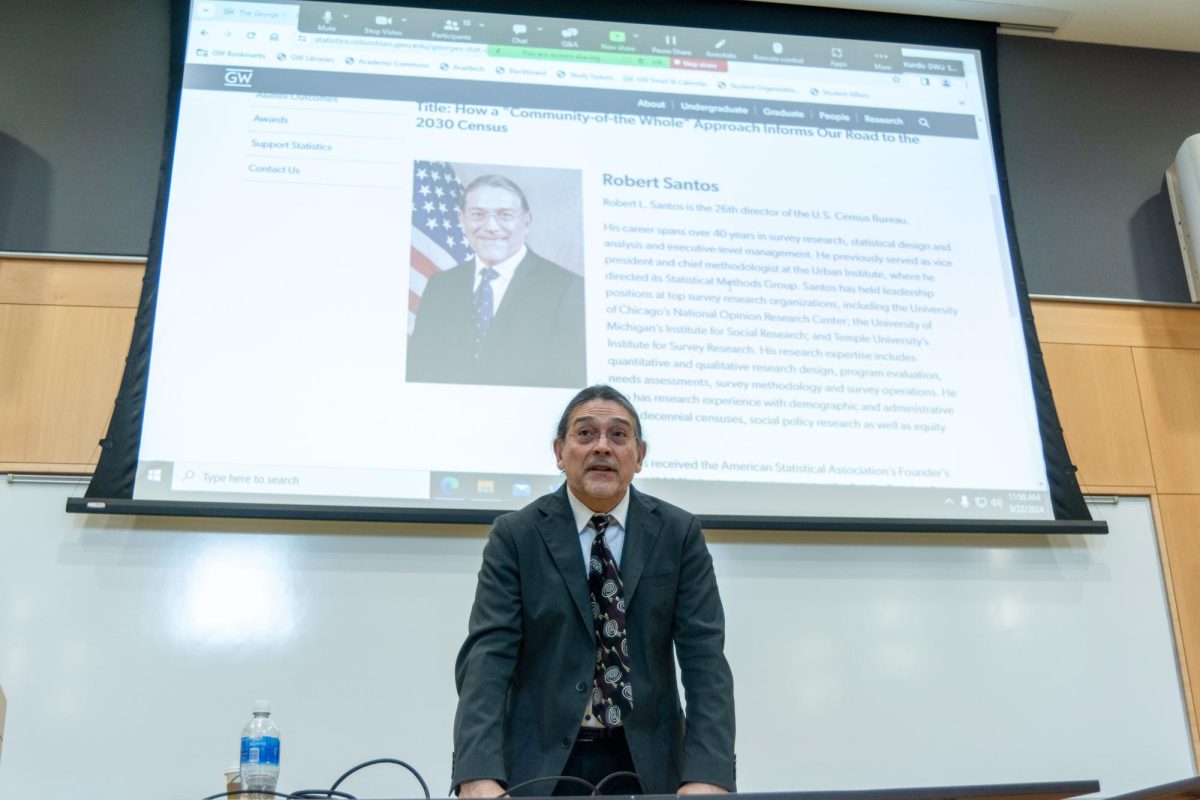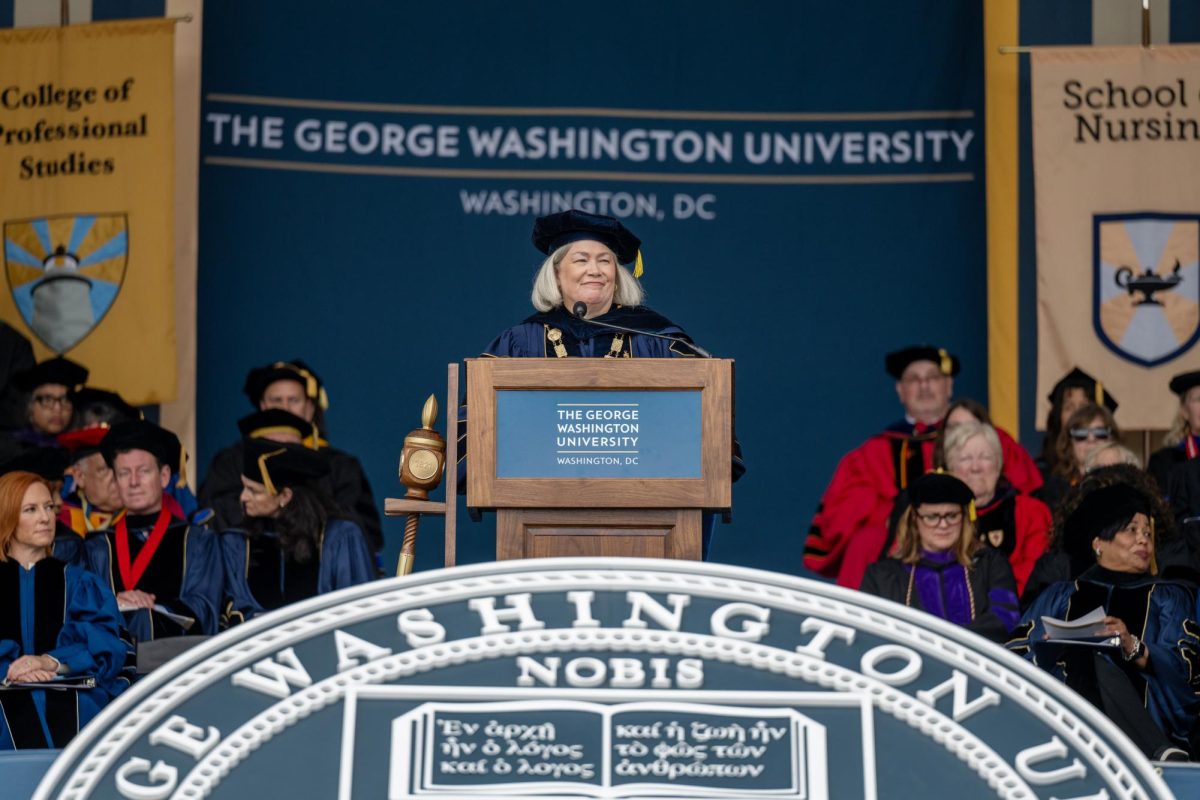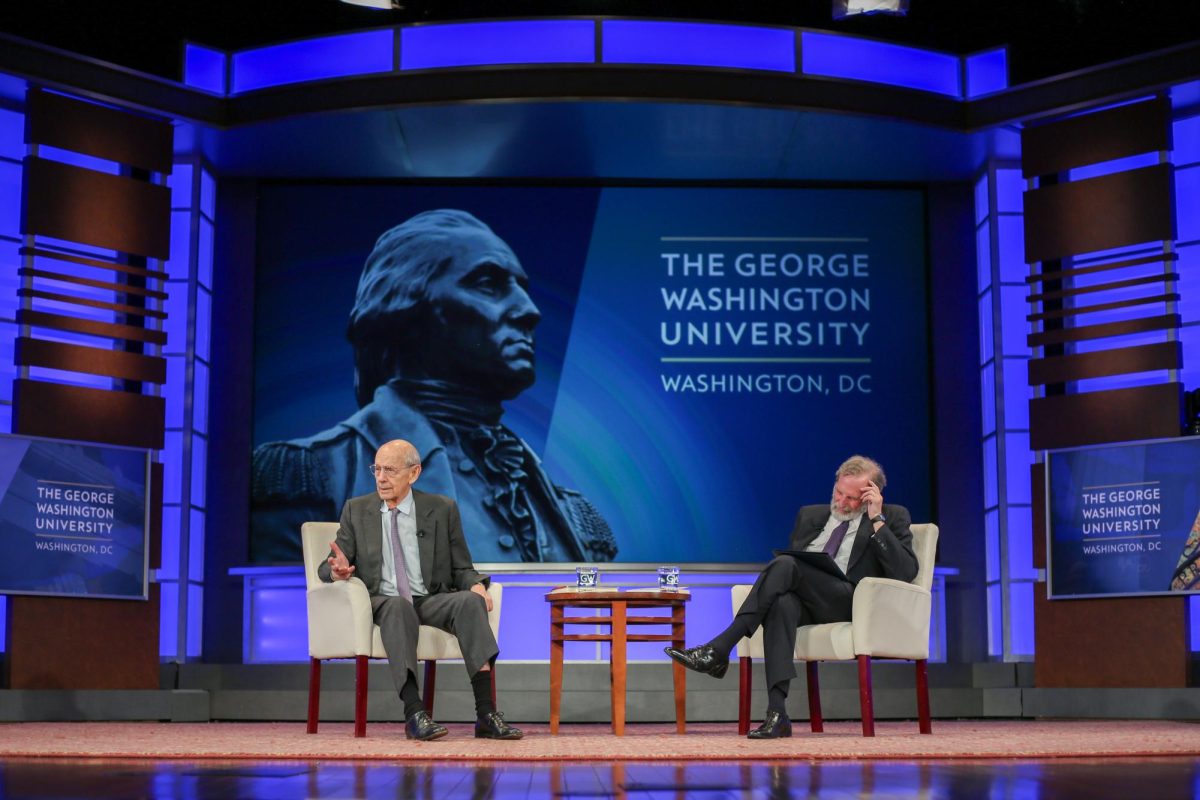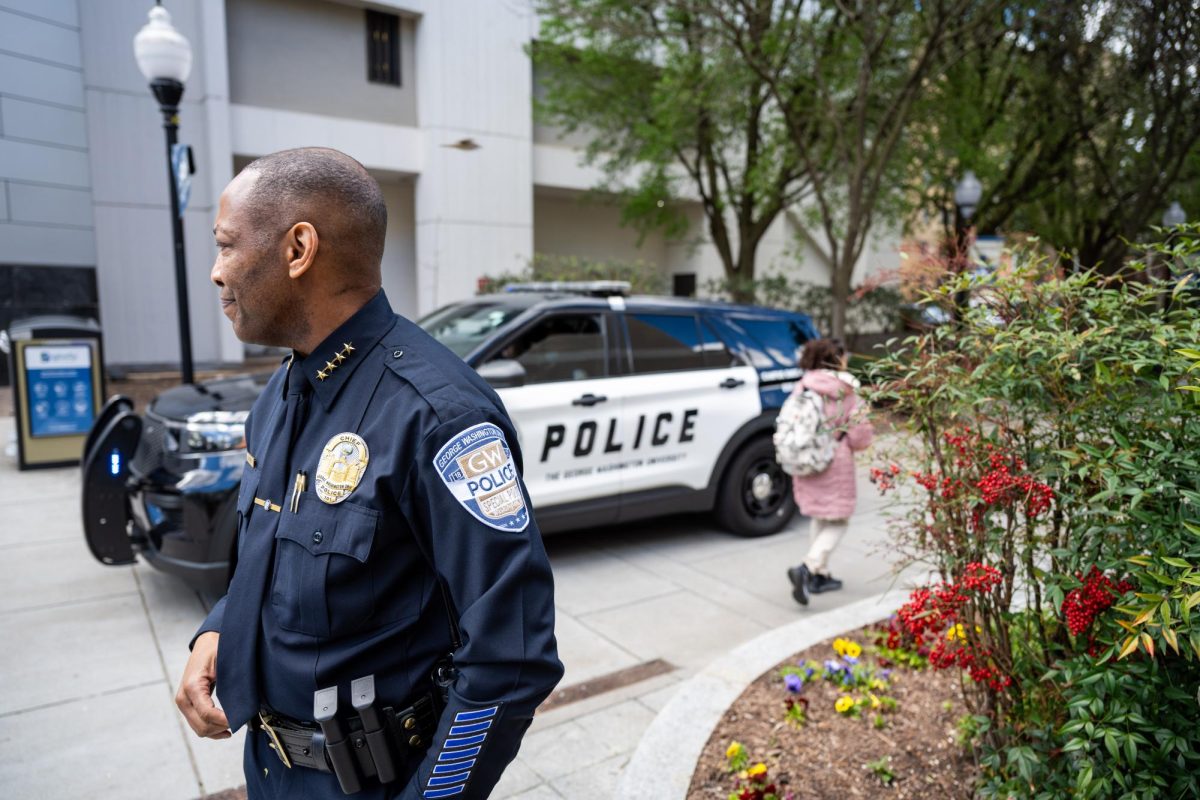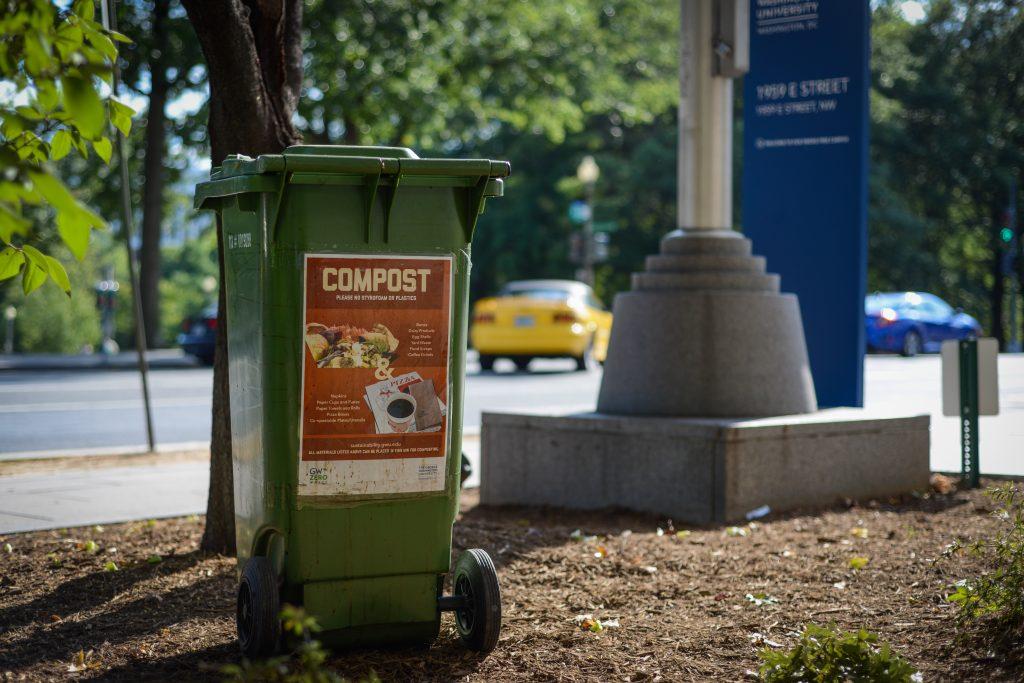Updated: March 25, 2024, at 11:59 a.m.
The director of the U.S. Census Bureau discussed seeking feedback from a diverse set of voices and the Bureau’s new community-focused approach for 2030 at Ames Hall on Friday.
Robert Santos, the 26th director of the U.S. Census Bureau since 2022, said the Bureau is working to foster collaboration with local communities and seek feedback on the census from more diverse communities, which is crucial to ensuring accurate results. The GW Department of Statistics hosted Santos as part of Georges’ Statistics Day, a statistics department event with DMV area statisticians and researchers.
Santos said the Bureau faces numerous challenges while conducting surveys like respondents misunderstanding the questions or withholding information due to mistrust of the Bureau’s use for it. Santos said misrepresentations of the Bureau’s findings is also a prevalent issue, but the Bureau is working to reform itself to collect the most accurate data possible.
“We are finding new ways to collect data that will feature more accurate, and more useful, and more relevant data to the public and to communities,” Santos said.
Santos said public resistance to the ideas of diversity, equity and inclusion can hinder the ability of the Census Bureau to collect the most accurate data possible because respondents are less likely to respond truthfully to questions about race and ethnic background.
Santos, the first Latino director of the Census, said he has a unique perspective from previous directors, especially on updates to the phrasing of questions that reflect the habits of all Americans, not just the white, middle class.
“Starting in 1990, the question on mobility was something that says, ‘Do you do daily activities like jogging or housework chores or bowling or golf?’” Santos said. “Did it hit you yet? 1990, this is before Tiger Woods. Who golfs? People in country clubs. Who does bowling? Bowling was pretty much a working white class endeavor.”
Santos said some of the Bureau’s questions on race also don’t reflect modern circumstances, including how the Black demographic now includes more African immigrants in contrast to the 1960s and ’70s when almost all of the U.S.’ Black population were African Americans. He said one in nine Black Americans are from sub-Saharan nations.
“We have diversified,” Santos said. “Beautifully diversified.”
Santos said other data points like monthly income have become more difficult to collect because more Americans are working multiple jobs or jobs without regular payroll schedules.
“We have a huge chunk, like 40 percent, who are essentially forced to have multiple jobs, episodic work, pay-for-work, Lyft and Uber drivers and such,” Santos said. “Asking what used to be a simple question of ‘What did you make?’ is now a complicated endeavor.”
Santos said the COVID-19 pandemic caused difficulties getting residents to return their 2020 Census responses and led Bureau officials to begin updating old data gathering methods, like replacing mail-in census forms with digital response options. He said the Bureau developed a new “community-of-the-whole” approach, partnering with local communities to collect data rather than attempting a top-down strategy from the federal government.
“We’re embracing diverse perspectives by going out to communities and talking to them, listening. What worked in 2020? What didn’t?” Santos said.
Santos said the Census Bureau has also sent out Federal Register notices, which allow census respondents to give feedback on new questions and methods that officials are testing. He said the Bureau has already received 8,000 public comments providing ideas on improvement for 2030.
Santos said the biggest key to a successful census in 2030 is community engagement and local awareness about the Bureau’s work.
“What’s really gonna work is if a neighbor tells a neighbor, if a teacher tells the parents, if a school district or school board tells their clientele, if a pastor tells a congregation, that’s how you’re going to get active appreciation and participation,” Santos said. “But, this only works if you first empower the community.”
This post has been updated to correct the following:
The Hatchet incorrectly reported that Santos said the COVID-19 pandemic caused difficulties for citizens filling out the census. The Census Bureau counts all residents, citizens and noncitizens, who live in the U.S.


